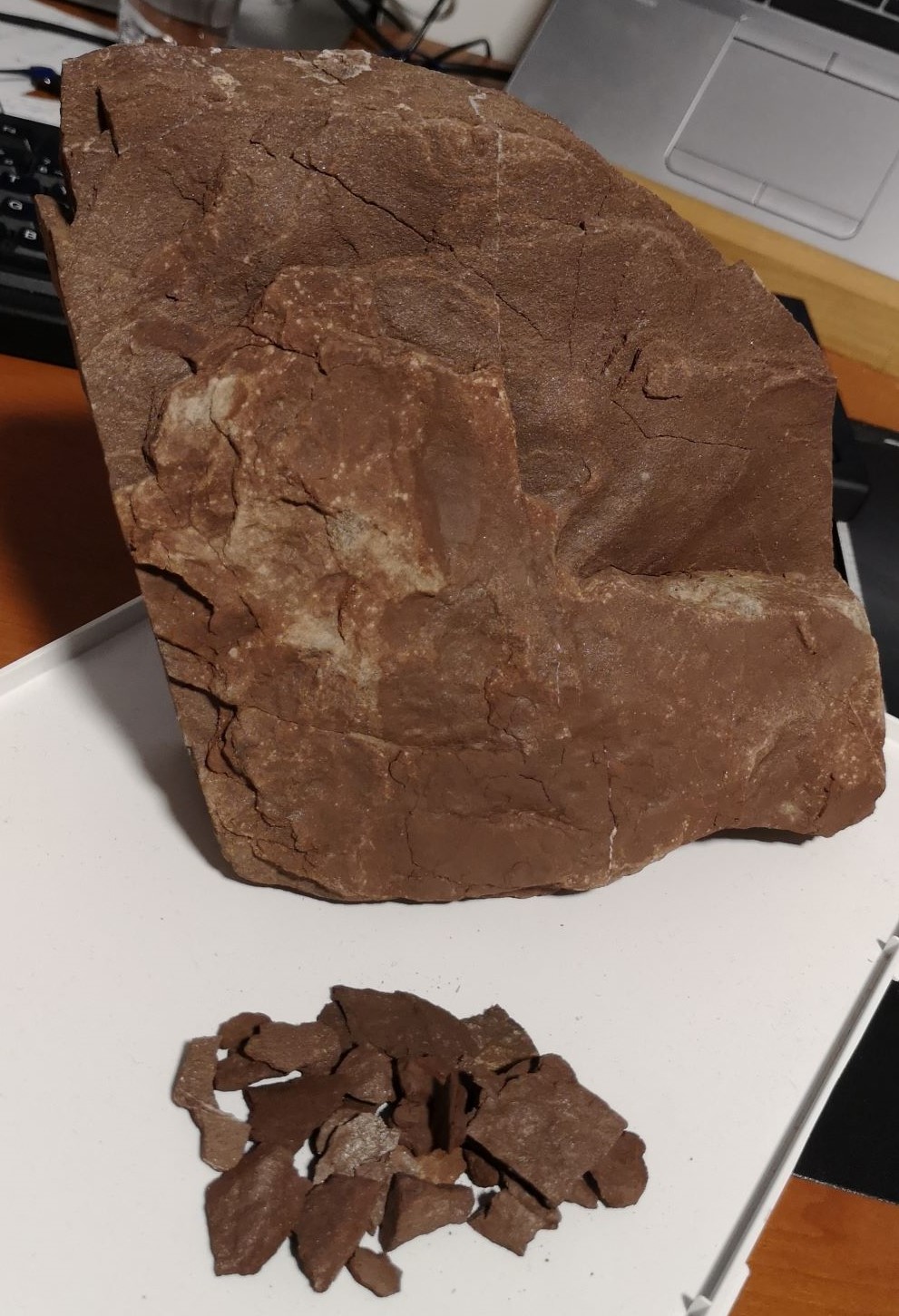I'm planning a new, 50 gallons (around 190 liters) aquarium and I found very nice looking, red rocks on the shore of the St. Lawrence river, close to where I live. I cleaned them (bleach, brushing) and did multiple tests on them, namely the muratic acid test as well as simply letting the rock sit in water for several weeks and testing the water afterward. All tests came out perfect, the rocks do not seem to affect my water parameters.
However, they crumble (break apart) quite easily. Personally, I do not mind much as it is not too bad and mostly happens through manipulation. At worst, I'll have some pieces spreading around in my sand when time passes. However, I've seen on different sites (including this one) that we should avoid these type of rocks. They say it's bad for fish safety, but I have trouble understanding how my rock could injured my neons, tetras, otocinclus, etc. a way that would be worst than what they face in nature.
Why are crumbling rocks bad for aquarium and is it that big a deal?
The image below shows one of the rocks (if anybody knows what type of rocks that is, please tell it.)
